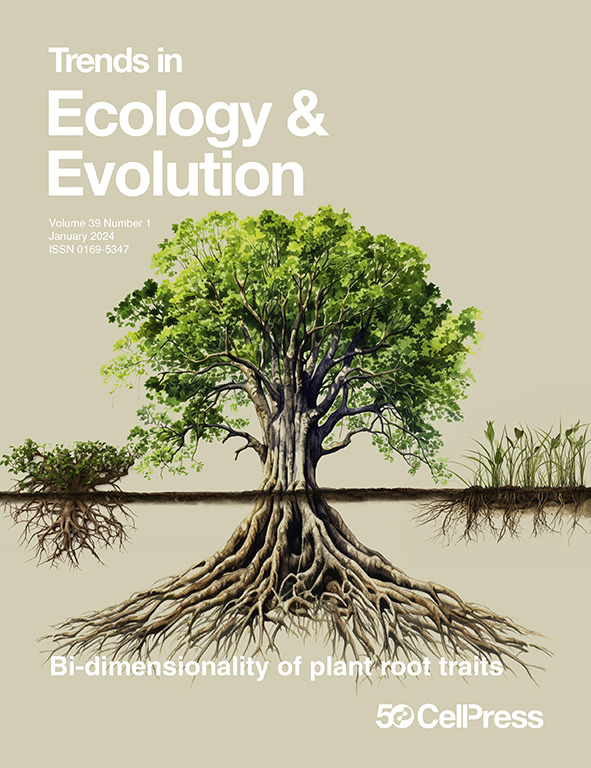奇妙分布的新转折:斐济-汤加鬣蜥。
IF 17.3
1区 生物学
Q1 ECOLOGY
Trends in ecology & evolution
Pub Date : 2025-06-01
Epub Date: 2025-05-13
DOI:10.1016/j.tree.2025.04.011
引用次数: 0
摘要
水上“漂流”占据了“海洋”岛屿上大部分的生物群。可以说,最引人注目的例子涉及斐济和汤加的鬣蜥。Scarpetta等人最近提供了令人信服的证据,证明它们起源于北美西部,在过去的3300万年里发生了跨洋扩散。本文章由计算机程序翻译,如有差异,请以英文原文为准。
New twist to a fantastical distribution: Fiji-Tonga iguanas.
Over-water 'rafting' accounts for much of the biota on the 'oceanic' islands. Arguably, the most spectacular example concerns the iguanas on Fiji and Tonga. Scarpetta et al. have recently provided compelling evidence for them originating in western North America, with their trans-oceanic dispersal occurring within the past 33 million years.
求助全文
通过发布文献求助,成功后即可免费获取论文全文。
去求助
来源期刊

Trends in ecology & evolution
生物-进化生物学
CiteScore
26.50
自引率
3.00%
发文量
178
审稿时长
6-12 weeks
期刊介绍:
Trends in Ecology & Evolution (TREE) is a comprehensive journal featuring polished, concise, and readable reviews, opinions, and letters in all areas of ecology and evolutionary science. Catering to researchers, lecturers, teachers, field workers, and students, it serves as a valuable source of information. The journal keeps scientists informed about new developments and ideas across the spectrum of ecology and evolutionary biology, spanning from pure to applied and molecular to global perspectives. In the face of global environmental change, Trends in Ecology & Evolution plays a crucial role in covering all significant issues concerning organisms and their environments, making it a major forum for life scientists.
 求助内容:
求助内容: 应助结果提醒方式:
应助结果提醒方式:


